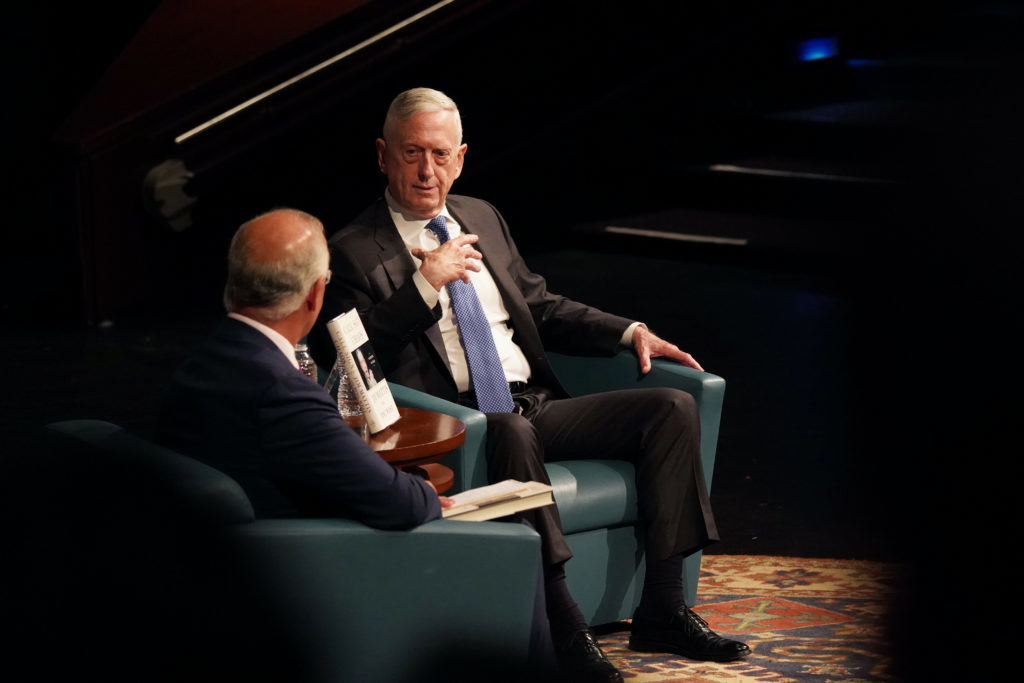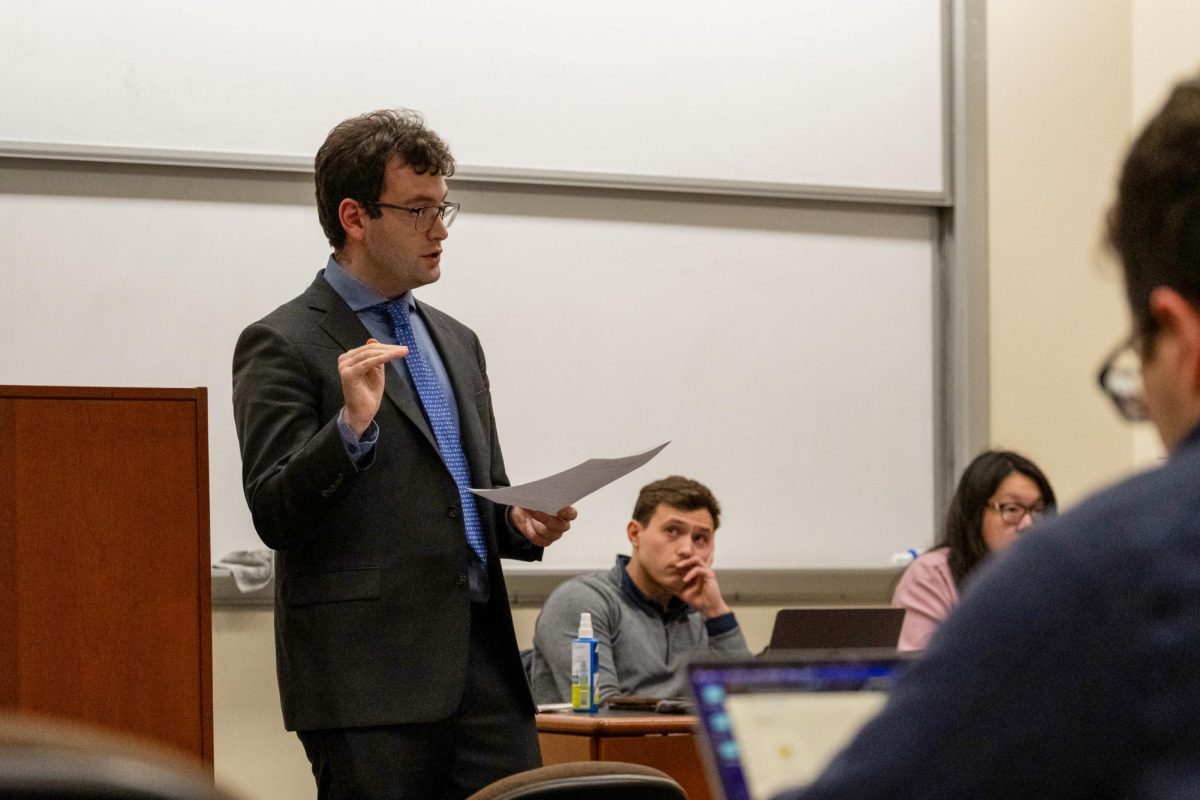Former Secretary of Defense and Marine Corps General James Mattis discussed his four-decade-long career in the armed forces at the Marvin Center Friday.
Mattis, who served as defense secretary under President Donald Trump until his resignation last December, shared lessons he learned about leadership from his career with the audience in a conversation with New York Times columnist David Brooks. At the event, which was sponsored by independent bookstore chain Politics and Prose, Mattis discussed his new memoir Call Sign Chaos, which follows his life from a Marine recruit to a four-star general.
Mattis said his time in the armed forces taught him commitment and excellence – that giving 100 percent was the only option.
“On the battlefield, there is no trophy for 2nd place, much less 9th place,” he said. “So you’ve got to win and so you’re brought up with this very grim set of skills by people who have been there, they’ve done it and they’re not really interested in a reason why it cannot happen. You’ve simply got to carry through.”
Mattis said the knowledge that those alongside him would be at his side even in life-threatening situations was “humbling” and added that being part of the Marines felt like being part of something larger than just himself.
He said he was taught to encourage officers to come “as close to the line” separating officers from their troops as possible without giving up authority. Building trust and affection are both crucial to helping troops stay dedicated and staying honest as a leader facilitated those emotions, Mattis said.
“When morale goes down in combat you know right away you’re going to lose more people,” he said.
Mattis said Marines believe in “command in feedback” leadership style instead of “command in control,” in which leaders outline objectives and then take their hands “off the steering wheel” and give troops autonomy to meet those goals.
Mattis also discussed his three-year tenure at U.S. Central Command under former President Barack Obama. He said that while he disagreed with Obama’s decision to withdraw troops from Iraq in 2013 – which he said led to the “catastrophic result” of millions of people being displaced from their homes – he had to respect the president’s authority and obey the order but registered his opposition.
“I gave what I thought was the strongest admonition why we must not do this but if you believe in the Constitution, if you’re going to uphold the Constitution, then you keep faith with it and you carry out the orders of the civilians unless you think they’re immoral,” he said. “While I thought it was strategically unsound, under me we did pull those troops out because that was the right of the elected commander-in-chief.”
Mattis, who resigned from his post in Trump’s cabinet amid disagreement with the president’s decision to withdraw troops from Syria and Afghanistan, has chosen to remain quiet about the Trump administration so far.
Referencing the French concept of “devoir de réserve” – the duty of quiet – Mattis said service members shouldn’t make political assessments of civilian leaders. He said Americans admire the military for being an apolitical institution and added that though he is no longer in active service, many audience members still think of him as a general, which is why he has refrained from speaking out about Trump.
“You don’t go out and take part in partisan politics and start seeing how many generals you can line up on this person versus that person,” Mattis said.
Mattis said he wrote his book to pass on the knowledge he learned from his 40-year career, framing it with the context of his “love affair with the U.S. Constitution.” He called the founding document “precious” and said he would continue to work to preserve the document and America’s democracy for generations to come.
“For us to have this today – this experiment seems so precious to me that I will commit whatever I can to help the young people become the leaders they want to be,” Mattis said. “I don’t care if it’s in business or the diocese or their small town or wherever it is and I don’t have all the answers – I can tell them, ‘Here’s what worked for me.’”





